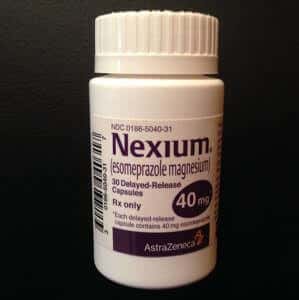
Even though their names sound a bit like invaders from outer space, drugs like Nexium and Protonix have become extremely popular. These proton pump inhibitors (PPIs) include dexlansoprazole (Dexilant), lansoprazole (Prevacid), omeprazole (Prilosec) and rabeprazole (AcipHex).
Such drugs are the most powerful acid suppressors in the pharmacy, originally reserved for severe heartburn and reflux. Now, however, they are frequently used to treat a wide range of gastrointestinal symptoms.
They are generally thought to be extremely safe. In fact, the FDA approved lansoprazole and omeprazole for sale over the counter. Millions pop Prilosec, Prevacid or their house-brand equivalents to ease indigestion.
Are PPIs as safe as most people think? Over the last several years, evidence has been accumulating that brings the long-term safety of such medications into question.
The first serious problem to be detected was an increased risk of pneumonia (Journal of the American Medical Association, Oct. 27, 2004). There is also a higher chance of coming down with a disruptive intestinal infection, C. difficile (Journal of the American Medical Association, Dec. 21, 2005).
Stomach acid plays a protective role by killing unwanted bacterial invaders. Suppressing acid may increase the risk for infection.
People taking PPIs long term are also more likely to become deficient in magnesium and more vulnerable to bone fractures (Expert Review of Clinical Pharmacology, July, 2013). Other nutritional deficiencies, such as iron and vitamin 12, have also been reported and can cause serious complications.
Even more worrisome is a recent connection between acid-suppressing PPI drugs and cardiovascular complications, especially in patients at high risk for heart problems. Patients with chest pain or clogged coronary arteries may be vulnerable to an unexpected side effect.
New research demonstrates that PPIs reduce the flexibility of blood vessels (Circulation, online, July 3, 2013). These drugs interfere with the production of nitric oxide, a natural compound made by the body that helps blood vessels relax. This may help explain why a study found that older people on high-dose PPIs were more likely to die during the year after hospital discharge (JAMA Internal Medicine, April 8, 2013).
Although some patients may require long-term treatment with PPIs, others may end up taking drugs like Nexium or Prevacid much longer than necessary. That may be in part because these meds can sometimes be very difficult to discontinue. When such medications are stopped suddenly, the body can react by churning out excess stomach acid for weeks or months (Gastroenterology, July, 2009; Scandinavian Journal of Gastroenterology, May, 2013).
For helpful tips on getting off PPIs and information on other ways to treat heartburn, you may wish to consult our Guide to Digestive Disorders.

